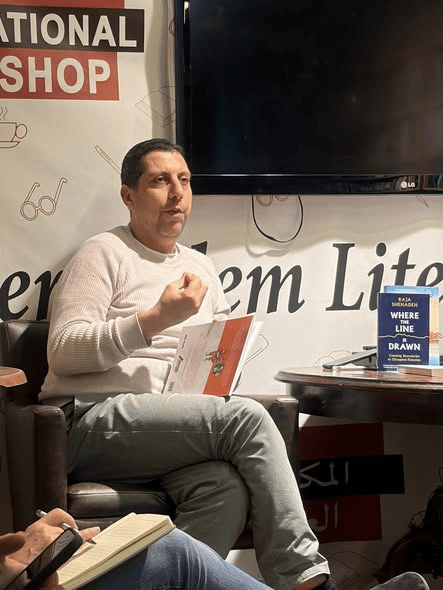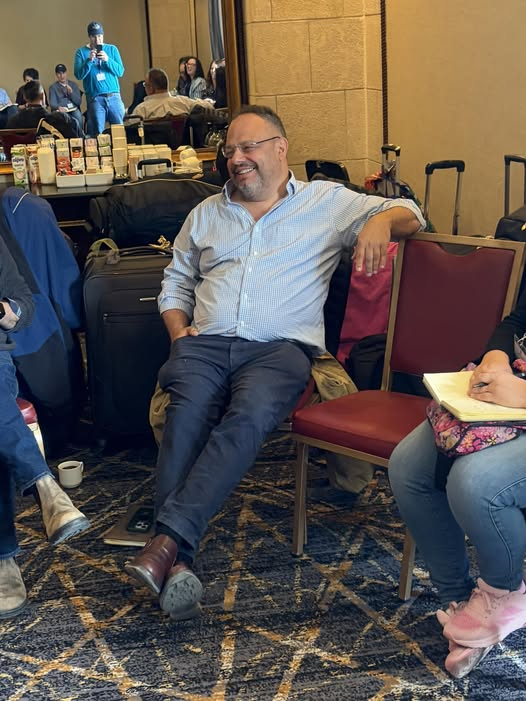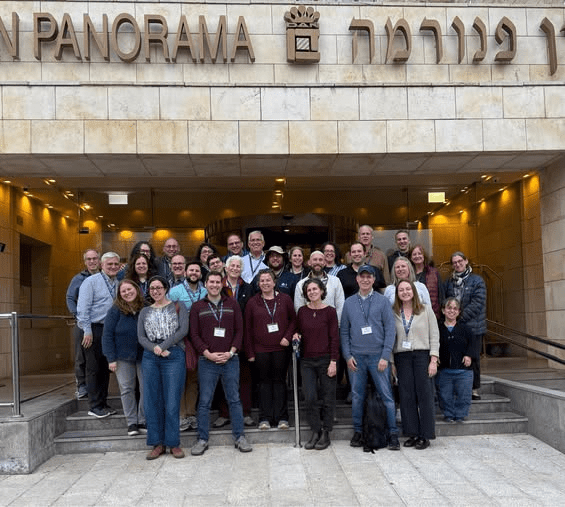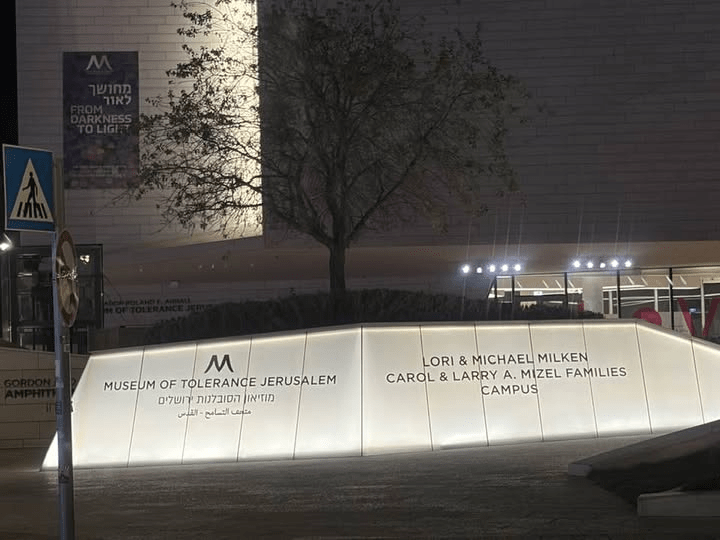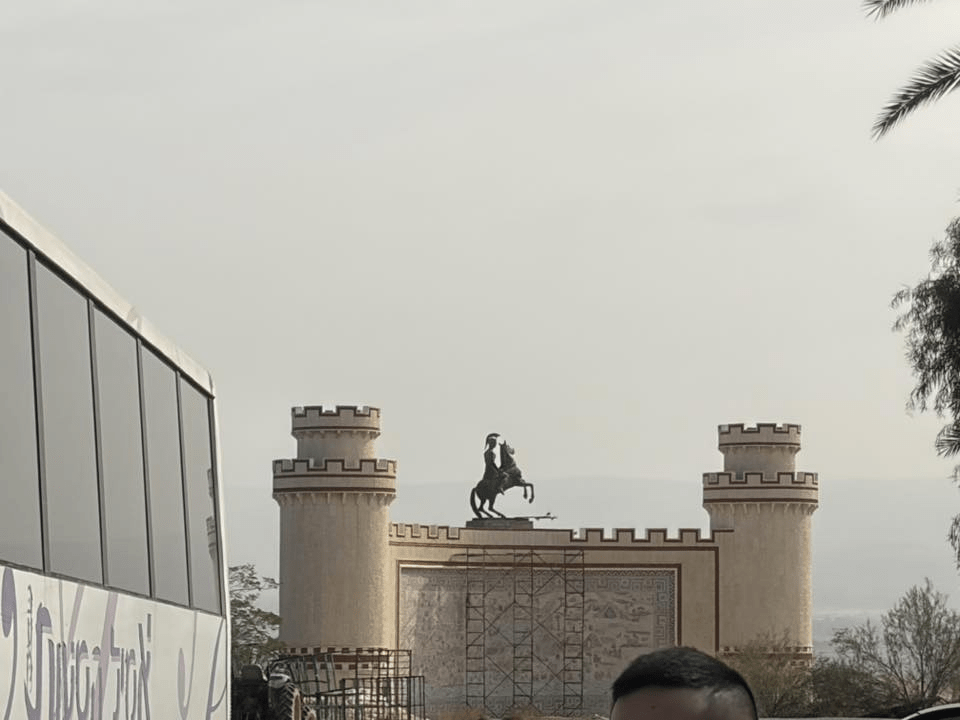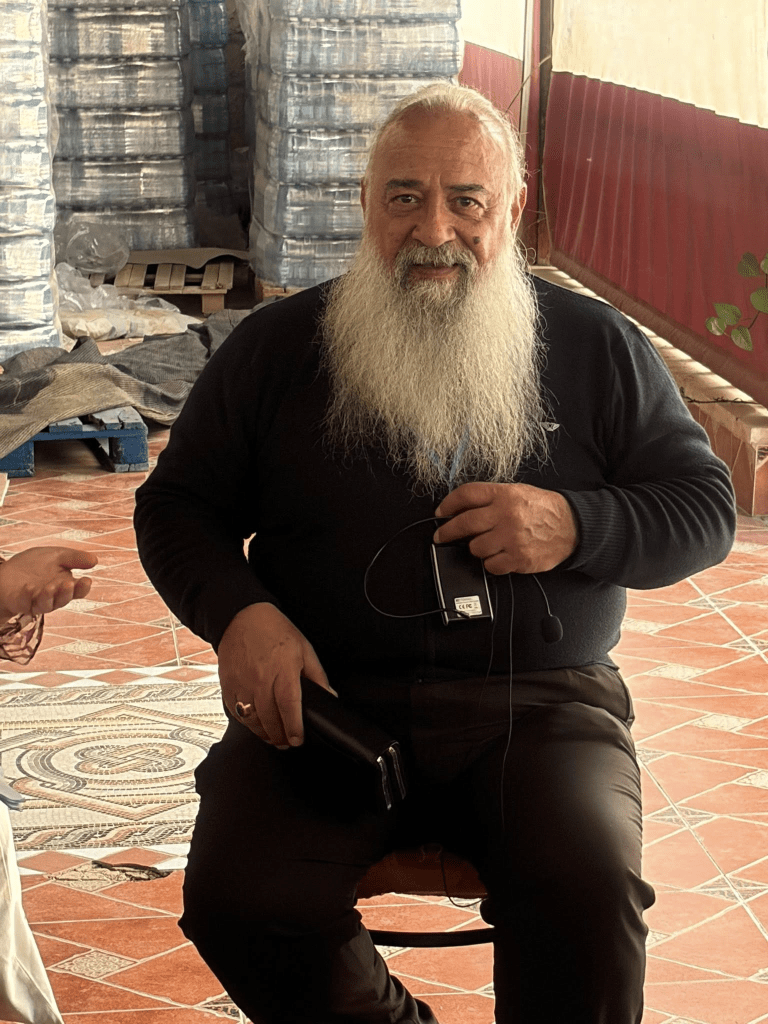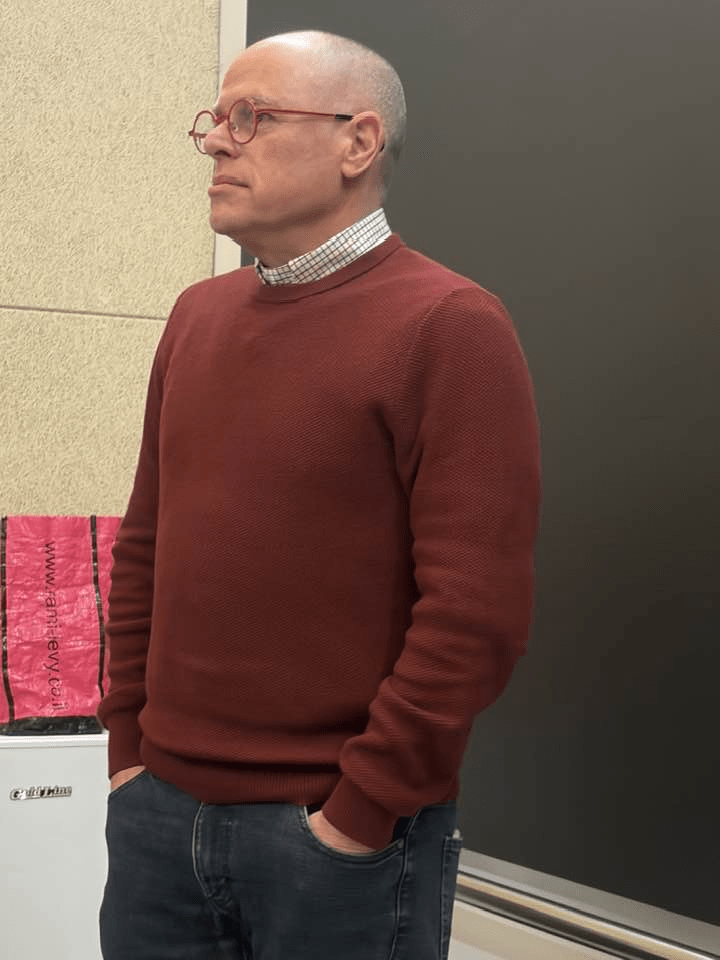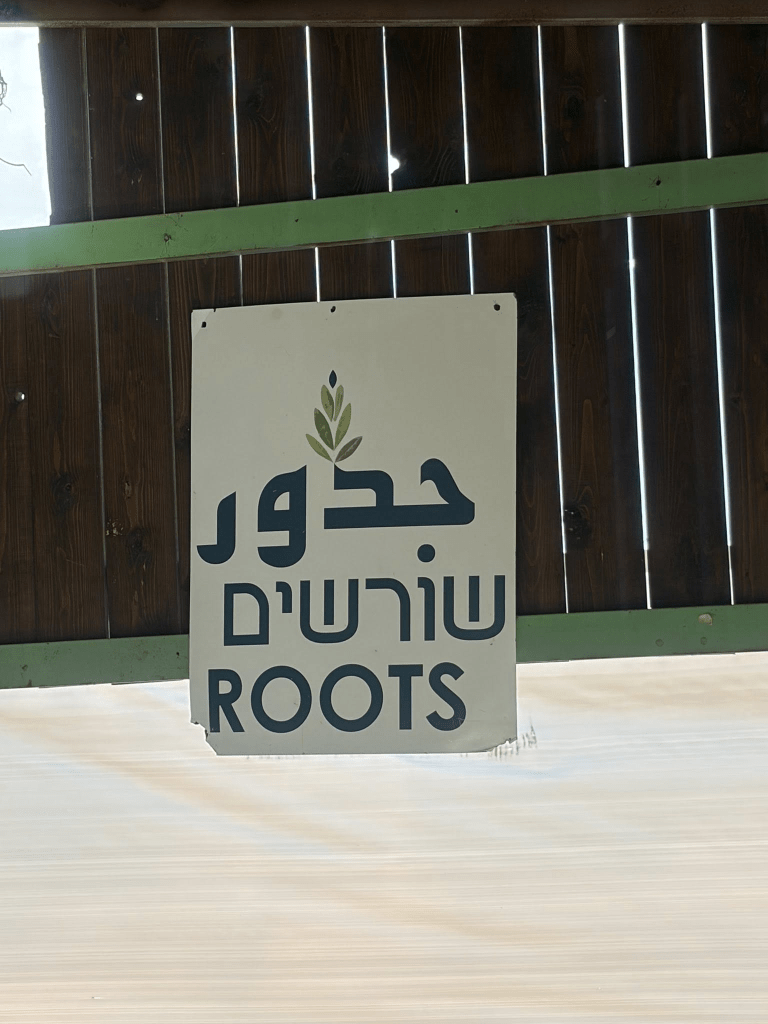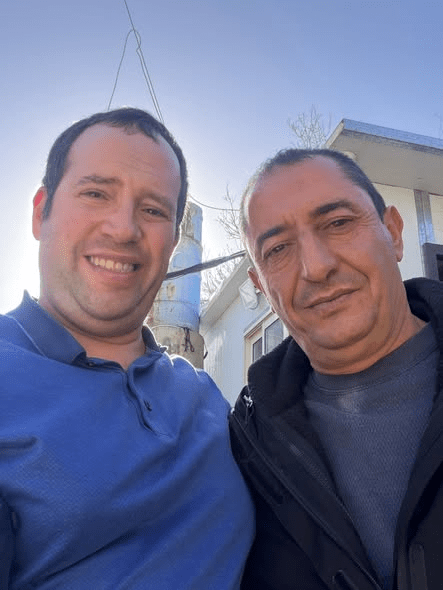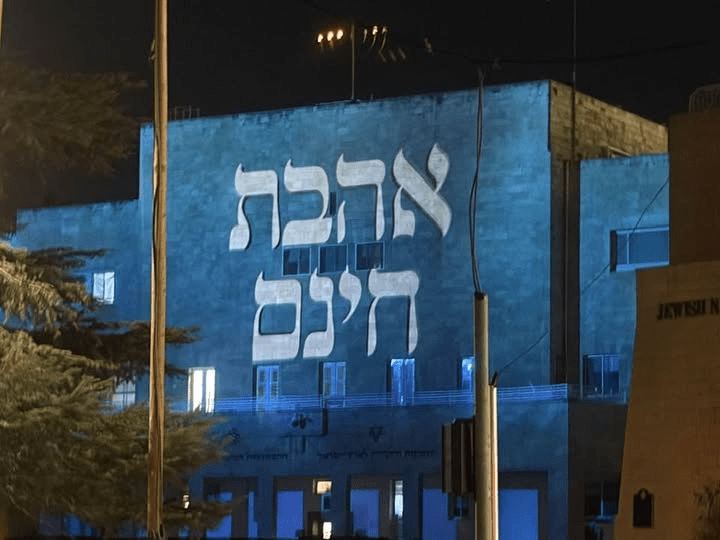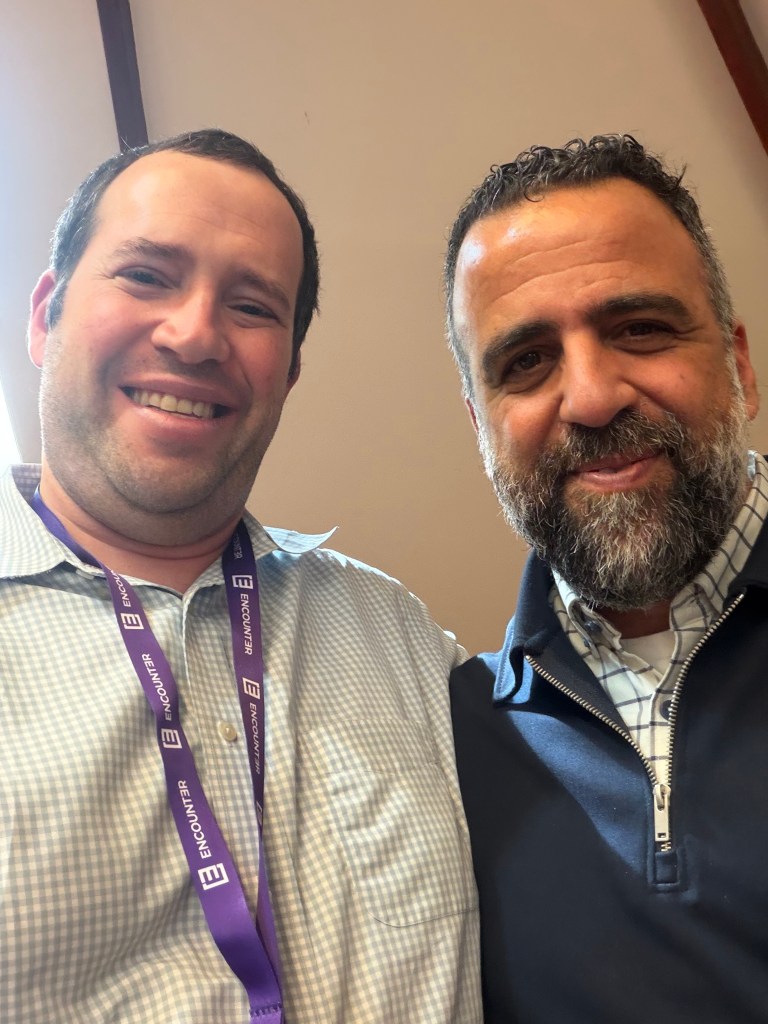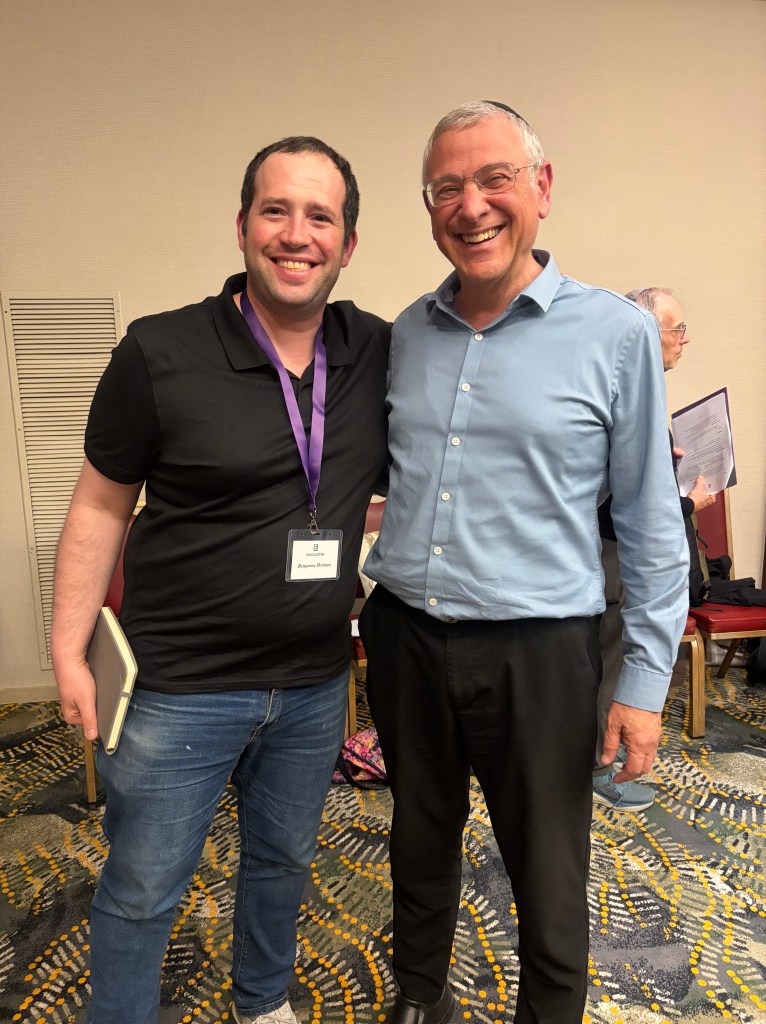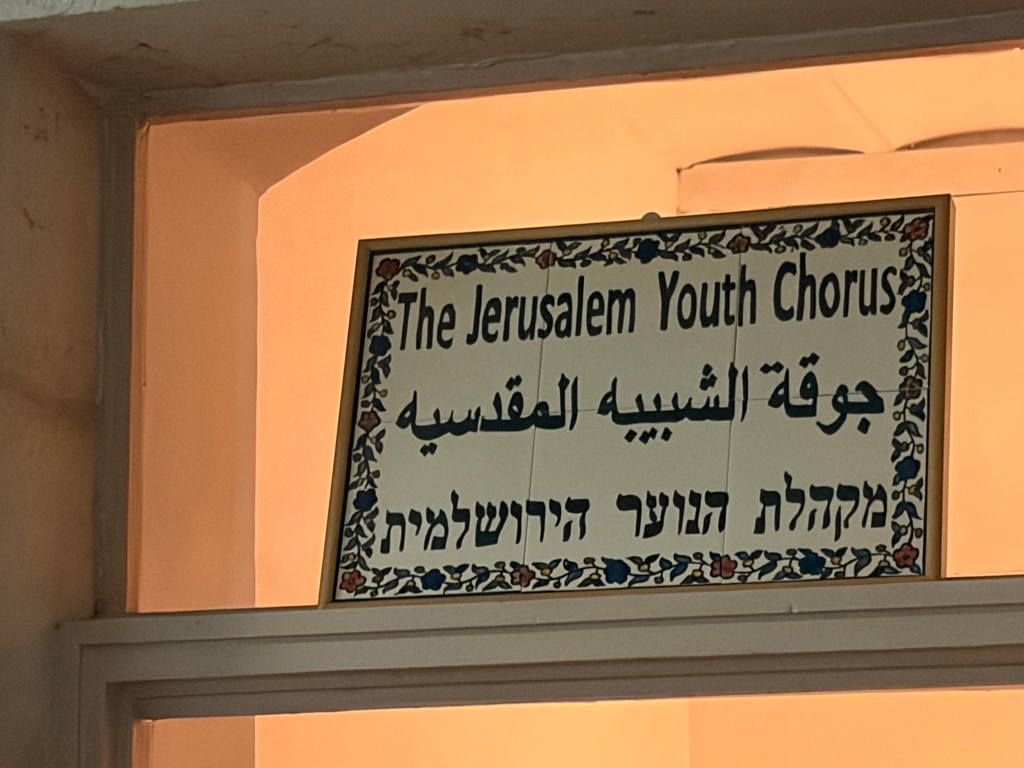When you turned 1 and I 86
What marvel that we both exist
In same world now
Though we live apart
Know each moment
You are in my heart.
So much I learned
You still must learn
Now we share life
While life’s days turn.
To try to walk
Your present goal
While your very being
Delights my soul.
Sweet precious girl
So dear to me
Now I will love you
Eternally.[1]
My grandmother wrote this love note to my daughter Ariela two weeks before the end of her life. She refused to use the “d” word-perhaps not what you are thinking by it. The d word is death. Instead, she always said “became eternal.” In my younger years I found this to be strange and counterproductive, as it felt like Elizabeth Kubler-Ross’ first stage of grief, denial of death. Part of this has to do with why we grieve. As Kathryn Schultz writes in her book Lost and Found: A Memoir, “part of what makes grief so seductive is it seems to offer us what life no longer can: an ongoing, emotionally potent connection to the dead. And so it is to feel that once the bleak gift is gone, the person we love will somehow be gone, too.[2] As I’ve grown in my knowledge, I’ve found great wisdom in what Judaism can teach about an eternal connection with our loved ones-that they are never truly gone from us.
In our liturgy, eternality is reserved for God. Every morning we read the Song of the Sea which asserts ה ימלך לעולם ועד-Gd shall live forever and ever,[3] as well as Ashrei which states ואברכה שמך לעולם ועד, and I will praise Your (God’s) name forever and ever.[4] God’s qualities also have an eternal impact, as we read on Shabbat and holidays כי לעולם חסדו, God’s lovingkindness is forever.[5] As we are in the image of God, the prophets believed that certain qualities will live forever, Isaiah asserting ועמך כלם צדיקים לעולם ירשו ארץ, “your entire nation is righteous, and they will inherit the land forever.”[6]
The Zohar, a medieval mystical book, teaches that the soul is an eternal and immortal aspect of the self that has a divine origin and, through successive incarnations, undergoes experiences that evolve and purify it. Rabbi Isaac Luria, a 16th century Kabbalist, taught ““The soul returns to this world to complete what was left unfinished, to repair and elevate.” We often think of reincarnation as an idea of eastern religions; it is in Judaism as well. The Zohar speaks of 5 different levels of the soul: Nefesh, Ruach, Neshama, Chaya, and Yechida. Each layer represents a different level of the soul’s development and connection to the divine. It further teaches that “at the time of a man’s death, he is allowed to see his relatives and companions from the other world.”[7] In a message that resonates with today, Yom Kippur, the day on which we rehearse our own death, we learn, “On the day when a person’s time arrives to depart from the world…three messengers stand over her and take an account of her life and all that she has done in the world and she admits all with her mouth and signs the account with her hand…she should be judged in the next world for all her actions, former and latter, old and new, not one of them is forgotten.”[8]
This can give us comfort in the idea that part of us will live on. At the same time it might give us the heebie-jeebies: my soul can be reincarnated into someone else? Furthermore, the Zohar teaches that there were 600,000 Israelite souls, all found at Sinai-how does that work when there are close to 16 million Jews, let alone other righteous people of all faiths? Some of us might prefer the words of Gershon Scholem, a professor of Jewish mysticism: “The language of the Zohar must be understood symbolically; its stories and words are vessels for deeper spiritual truths.”[9]
How might those who prefer the rational understand eternality-or is it simply when you die, that’s it? The medieval Jewish philosopher, Rabbi Levi Ben Gershon, also known as Gersonides, wrote a beautiful teaching about this in his book Milchamot HaShem:
Man is immortal in so far as he attains the intellectual perfection that is open to him. This means that man becomes immortal only if and to the extent that he acquires knowledge of what he can in principle know e.g. mathematics and natural sciences. This knowledge survives his bodily death and constitutes his immortality.[10]
Why is this important? The Yizkor prayers we will recite beginותדעהו ה מה אדם “God, what is humanity that you are mindful of us?” On Yom Kippur, we reflect on what is the meaning of our lives? After all, we are one moment closer to death now than we were before. By holding onto the eternality of people, we recognize that the spirit of our loved ones continue within us. One way in which this occurs is when we remember words that they have said. As in the words of an early 20th century rabbi:
We know that everything that has once been brought into existence cannot be put out of existence. The word I now speak is spoken forever; it can never be recalled. The soul once propelled into the universe cannot be put out of it; it can never be destroyed. What becomes of it after death I know not.”[11]
When something has been created, it cannot be retracted. Similarly, once someone has lived on this earth, their presence endures even after their physical departure. Just as an imprint cannot be erased, neither can a person’s impact in the world. As stated by Rabbi Bernard S. Raskas in his sermon “A Jewish View of Immortality”:
What is this immortality in which I believe?
I believe that a person lives on in his or her family…
I believe there is a form of immortality in the institutions we build and the causes we espouse…
I believe in the immortality of friendship and helpfulness…
I believe in the immortality of existence…
I find immortality in people.”[12]
This sentiment is found in contemporary times as well. Take Rachel Goldberg-Polin, whose son Hersh was murdered by Hamas last year. At the Christians United for Israel Annual Summit, Rachel said, “I know love never dies. It is eternal.”[13] Our bonds to one another are immortal-they transcend this physical life. When we remember experiences we shared with those no longer physically present, we feel their spirit shining forth even today.
As we recite Yizkor, we remember those who came before knowing that their spark continues on inside of us. Rather than bemoan what was, we have pride in what is. We are comforted by the words of Rabbi Jacob Weinstein:
We, the living, can determine the kind of immortality our beloved shall have…We can act as their personal representatives to the living. Where they lifted the burden or worry from a fellow man, we can give encouragement and help; where they brought cheer and care and loyalty, we can be instead.”[14]
It is my prayer that the nobility in in our predecessors’ lives and the high ideals they cherished endure in our thoughts and live on in our deeds. May we, carrying on their work, help to redeem God’s promise that life shall prevail.[15] In so doing, we will follow the Torah commandment to choose life, making choices and decisions that emulate the greatest values of our people.
I will conclude with another of my grandmothers’ poems, from eight years after the passing of her mother.
Eight years after,
Marvel I
How those years brought us closer.
This experience called dying,
Which on surface seemed to sever,
Only brought us fonder, nearer-
Every moment of eight yearspans
Only wove us more together.
Eight years after-
Yearspans after-
Eight years after,
Marvel I
Of the legacy you left me,
Giving me not only moments,
Opportunity of moments,
But the precious worth of moments
And the meaning of life’s moments.
Eight years after-
Eight years after-
Eight years after,
Grateful I
For the heritage you left me-
In your teaching about lifetime,
In the reaching of your lifetime
Never, never, have you left me,
Never-never did you die![16]
[1] Lucille Frenkel, February Love Note about Our Shared Birthday Month
[2] Kathryn Schultz, Lost and Found: A Memoir (New York: Random House, 2022), pg. 66.
[3] Exodus 15:18
[4] Psalms 145:1
[5] Psalms 136:1
[6] Isaiah 60:21
[7] Zohar I, 219a, in Simcha Paull Raphael, Jewish Views of the Afterlife (Northvale, NJ: Aronson, 2000), pg. 290.
[8] Zohar I, 79a, in Raphael, pg. 291.
[9] Gershon Scholem, Zohar: The Book of Splendor (NY: Shocken Books, 1963), pg. 21.
[10] Raphael, pg. 261.
[11] J. Leonard Levy, Prophetic Voice (Pittsburgh, PA: Rodeph Shalom Congregation, 1970), pg. 86.
[12] Bernard S. Raskas, “A Jewish View of Immortality,” The American Rabbi, 19/1 (August 1986), pg. 57-59.
[13] Rachel Goldberg-Polin, Cufi Summit, 7/2/25
[14] Rabbi Simon Greenberg, A Treasury of Comfort, pg. 225.
[15] Gates of Prayer, pg. 626.
[16] Lucille Frenkel, “The Immortality for My Mother Rose B. Forman” In A Jewish Adventure (Milwaukee, Wi: The Eternity Press, 1983), pg. 125.
